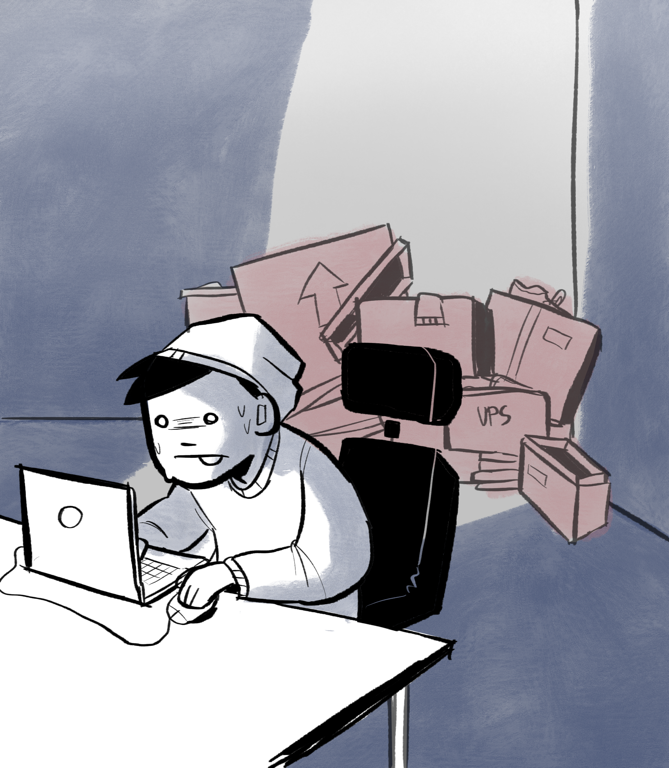While we’re in the midst of a global pandemic, the ability to shop online is not only valuable and convenient, but also necessary to allow us to remain socially distant until the spread of the coronavirus is controlled.
Online retail sales increased 40% from 2019 to 2020 according to DigitalCommerce360, a business research website.
Rightly so, as people shopped online to avoid catching COVID-19 instead of visiting grocery and retail stores.
Online services provide a safe shopping method while the pandemic still rages.
A basic understanding of COVID-19 is you can only catch the virus from other people, so staying home is a fantastic way to avoid it, provided everyone in your home takes the same precautions.
COVID-19 is transmitted through respiratory droplets from coughs, sneezes or talking within six feet of another person, according to the guidelines of the Centers for Disease Control and Prevention (CDC).
Anyone who has been in a grocery store knows that even when stores attempt to maintain distance between customers, results are inconsistent at best.
Online shopping makes the coronavirus a non-issue because packages are delivered to your front door and for the most part, there’s no human interaction involved.
We all have to leave our homes eventually and masks allow us some degree of protection from the virus.
However, wearing a mask doesn’t guarantee you won’t catch COVID-19.
In fact, the effectiveness of masks vary by their material with the commonly available cloth mask being the least effective, according to the same CDC guidelines.
On top of that, N95 masks, the “gold standard” in protection from COVID-19, are still in short supply in the U.S., according to a
Jan. 27 NPR article.
That isn’t to say masks are completely ineffective and by all means, wear one when you’re out of the house for your safety and the safety of others.
But if you want to avoid the risk altogether, just stay home and get your necessities delivered.
One might wonder if the sudden shift to online shopping might have negative repercussions.
My colleague explains the environmental repercussions of increased delivery trucks and cars on the road to keep up with demand, as well as abundant waste generated from packaging.
Online shopping can be worse for the environment than just driving to the store for frequently bought items, according to a July 2020 article in the scientific journal Environmental Science & Technology.
Climate change is a very real problem that people need to take seriously.
However, the COVID-19 pandemic is a far more immediate problem taking lives every day.
So while my colleague asserts excessive online shopping can lead to negative environmental impacts, global carbon emissions actually went down by 7% from 2019-20, according to a Dec. 10, 2020 CNBC report.
The fact of the matter is, if you’re shopping online, you’re not going out to buy items in person. And if you’re not out and about, you’re not likely to catch or transmit COVID-19.
We can worry about the rest when we finally get this pandemic under control.









































